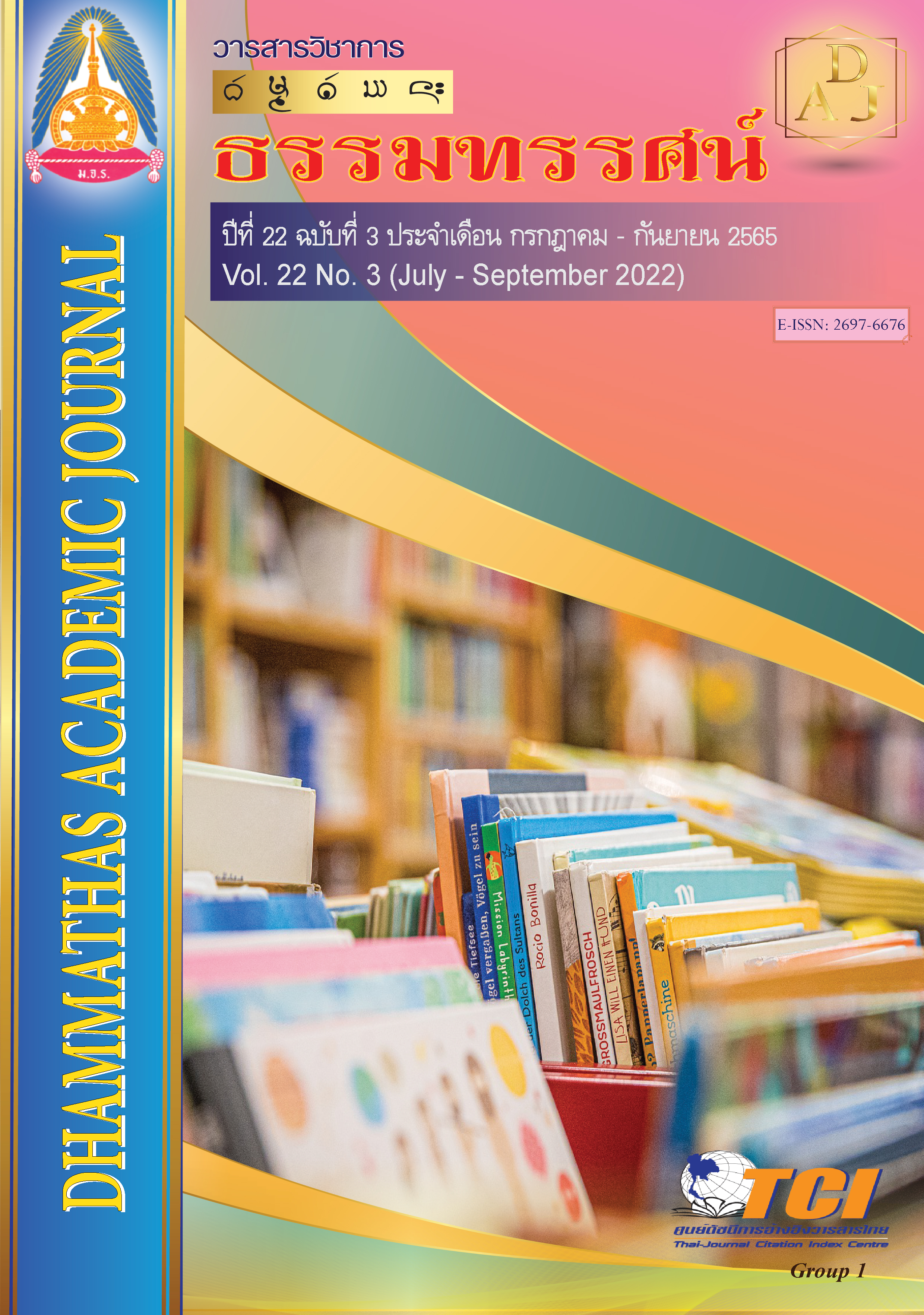Development Indicators of Disruptive Leadership for School Administrators under Office of the Basic Education Commission
Main Article Content
Abstract
The objectives of this research were: 1) Study the elements of Disruptive Leadership of school administrators. 2) Examine the Disruptive Leadership model for school administrators. A Mixed-Methods Research design sequential explanatory design. The sample group in this research was administrators and teachers, Office of the Basic Education Commission. By setting the parameters 20:1 for 660 people. The tool used is Semi-structured Interview and a 5-level estimation scale by tool quality. The Alpha coefficient was analyzed using Cronbach's method. From the survey results, the overall questionnaire confidence was 0.975.
Found that:
1. Element weight value Disruptive Leadership the elements have values ranging from 0.929-0.997. The elements with the highest factor loading elements are Persistent. Factor Loading the least, including Lifelong Learning has the weight of the elements in the figure Factor Loading equals 0.929.
2. Education at the Disruptive Leadership level of school administrators Under the Office of the Basic Education Commission, it was found that the overall level was
at a high level ( = 4.63, S.D. = 0.49). The aspect with the highest mean was Persistent (
= 4.7, S.D. = 0.46). The side with the lowest mean is Creativity (
= 4.55, S.D. = 0.51).
Article Details

This work is licensed under a Creative Commons Attribution-NonCommercial-NoDerivatives 4.0 International License.
เพื่อให้เป็นไปตามกฎหมายลิขสิทธิ์ ผู้นิพนธ์ทุกท่านต้องลงลายมือชื่อในแบบฟอร์มใบมอบลิขสิทธิ์บทความ ให้แก่วารสารฯ พร้อมกับบทความต้นฉบับที่ได้แก้ไขครั้งสุดท้าย นอกจากนี้ ผู้นิพนธ์ทุกท่านต้องยืนยันว่าบทความ ต้นฉบับที่ส่งมาตีพิมพ์นั้น ได้ส่งมาตีพิมพ์เฉพาะในวารสาร วิชาการธรรม ทรรศน์ เพียงแห่งเดียวเท่านั้น หากมีการใช้ ภาพหรือตารางของผู้นิพนธ์อื่นที่ปรากฏในสิ่งตีพิมพ์อื่นมาแล้ว ผู้นิพนธ์ต้องขออนุญาตเจ้าของลิขสิทธิ์ก่อน พร้อมทั้ง แสดงหนังสือที่ได้รับการยินยอมต่อบรรณาธิการ ก่อนที่บทความจะได้รับการตีพิมพ์References
กุลธิดา กรมเวช. (2558). ความมุ่งมั่นทุ่มเทในการทางานของพนักงาน: ปัจจัยที่เกี่ยวข้องและการพัฒนา.วารสารการพัฒนาทรัพยากรมนุษย์และองค์การ, 7(2), 87-103.
ขจี พงศธรวิบูลย์. (2556). การพัฒนาแบบวัดคุณลักษณะการเรียนรู้ตลอดชีวิตของนักศึกษาพยาบาล คณะพยาบาลศาสตร์เกื้อการุณย์ มหาวิทยาลัยกรุงเทพมหานคร. วารสารสภาการพยาบาล, 28(3), 43-54.
จุลศักดิ์ สุขสบาย และคณะ. (2560). การพัฒนาแบบวัดคุณลักษณะผู้เรียนรู้ตลอดชีวิตของนักเรียนระดับประถมศึกษาปีที่ 4-6. วารสารเกษมบัณฑิต, 8(1), 162-174.
เมธินี วงศ์วานิช รัมภกาภรณ์ และอภิสิทธิ์ เวชชาชีวะ. (2560). ผลการฝึกงานเพื่อเสริมสร้างพฤติกรรมความมุ่งมั่นในการทำงานของนิสิตในรายวิชาฝึกงานของสาขาวิชาธุรกิจและคอมพิวเตอร์ศึกษา คณะศึกษาศาสตร์ มหาวิทยาลัยเกษตรศาสตร์. วารสารศึกษาศาสตร์ปริทัศน์, 32(2), 55-64.
Carney, M. (2018). Reflections on Leadership in a Disruptive Age. London: Regent’s University London.
Creswell, J. W. (2011). Educational Research: Planning, Conducting, and Evaluating Quantative and Qualitative Research. New Jersey: Pearson Education International.
Hair, J. F., et al. (2010). Multivariate Data Analysis. (7th edition). New Jerse: Prentice Hall, Upper Saddle River.
Hogan, R., & Hogan, J. (2007). Hogan Personality Inventory manual. Tulsa, OK: Hogan Press.
Kao, R. (2018). Disruptive leadership: Apple and the technology of caring deeply—Nine keys to organizational excellence and global impact. New York: Productivity Press.
Khan, R. (2018). Disruptive Leaders. The definitive traits of leaders who are changing The world around us. Retrieved from http://www.risingkashmir.com/news/disruptiveleaders-326625.html

